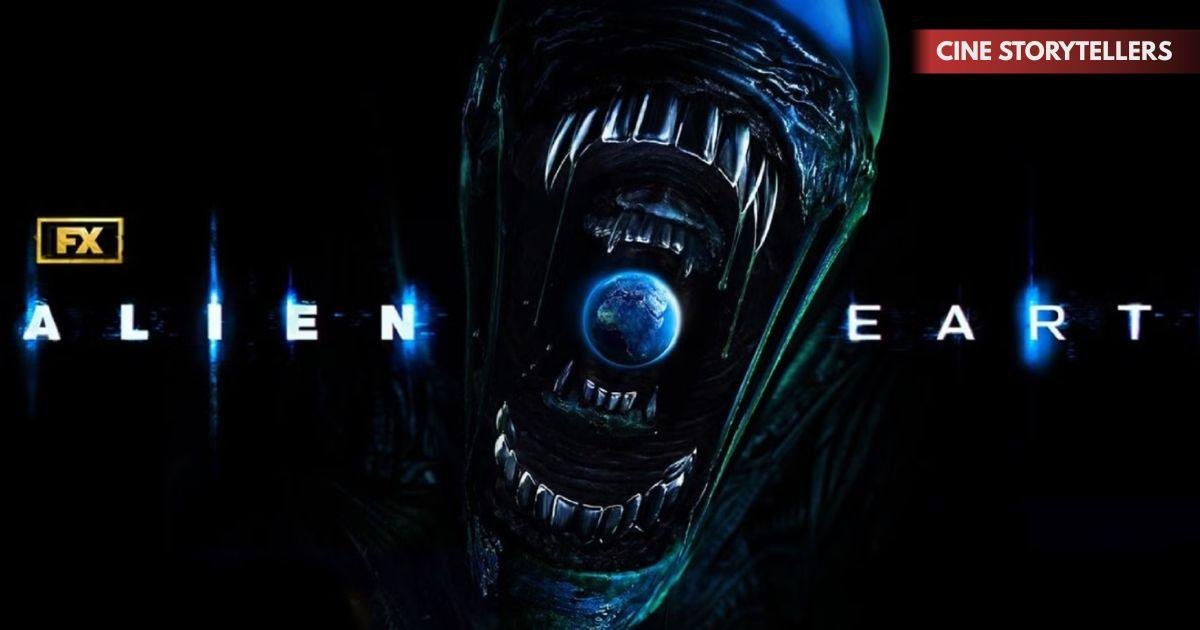The Alien franchise has terrified audiences for decades with its unique mix of suspense, horror, and gritty science fiction. Now, FX and Hulu’s new series Alien: Earth brings that same intensity to television, delivering what many fans are calling one of the best shows of the year.
Set in the year 2120, two years before the events of Ridley Scott’s original Alien (1979), the series blends retro-futuristic design, corporate intrigue, and chilling creature horror in a way that feels both nostalgic and refreshingly new.
A Prequel That Feels True to the Original Alien Films
One of the most impressive aspects of Alien: Earth is how seamlessly it connects to the tone and look of the first two Alien movies. The production design is heavily inspired by Ridley Scott’s original vision—claustrophobic corridors, dim lighting, and functional industrial technology rather than sleek sci-fi gloss.
The USCSS Maginot, the ship where the story begins, could easily pass as a sibling to the Nostromo. Its dining hall, mess areas, and cramped control rooms all evoke the tense atmosphere of the first alien outbreak. This authenticity helps the series immediately feel like a natural part of the Alien universe rather than a distant spin-off.
The Story – Corporate Rivalries and Dangerous Science
At the heart of Alien: Earth is the age-old Alien theme: humanity’s greed and ambition are more dangerous than the xenomorphs themselves.
The series opens with the crew of the USCSS Maginot waking from long-term cryosleep. They work for Weyland-Yutani, the corporate powerhouse infamous in the franchise for pushing moral boundaries in pursuit of profit. Their mission quickly goes off-course when they crash in territory controlled by Prodigy, a rival mega-corporation.
Prodigy, led by a tech genius with the eccentric energy of a barefoot Silicon Valley billionaire, has been conducting illegal experiments—both on xenomorphs and on human consciousness itself. These experiments spiral out of control when alien specimens escape, unleashing chaos.
Chilling New Sci-Fi Concepts – The Hybrid Synthetics
While the xenomorph threat remains central, Alien: Earth introduces a disturbing new element: synthetic-human hybrids. Prodigy has found a way to transfer the minds of terminally ill children into synthetic adult bodies—creating beings that do not age or die.
This raises unsettling ethical questions: Are these hybrids human? Are they property? And most importantly, how far will corporations go to exploit both human life and artificial intelligence for power?
Timothy Olyphant’s Standout Performance
Among the cast, Timothy Olyphant delivers one of the show’s most compelling performances as Kirsh, a synthetic with a deeply philosophical edge.
Kirsh isn’t just a machine—he’s a reflective observer of human nature. Some of his lines cut straight to the franchise’s thematic core, particularly his observations on ambition, morality, and survival. It’s the kind of performance that lingers with viewers long after the credits roll.
The Return of Xenomorph Terror
While Alien: Earth adds fresh science fiction ideas, it doesn’t forget what made the franchise famous—the xenomorphs themselves.
When the alien creatures break containment, the show delivers the tense, slow-burn horror that fans crave. The pacing builds dread through shadows, eerie sound design, and sudden bursts of violence rather than relying on constant action.
This is classic Alien—the fear of what you don’t see is just as powerful as the horror of what you do.
How Alien: Earth Expands the Franchise
Unlike some Alien prequels that focused heavily on mythology, Alien: Earth keeps its story grounded in human perspectives. It’s not about explaining every detail of xenomorph biology or origin—it’s about showing how ordinary (and flawed) people respond to extraordinary danger.
The series also expands on the political and economic backdrop of the Alien universe. By introducing corporate warfare between Weyland-Yutani and Prodigy, it explores new avenues of conflict beyond the alien creatures themselves.
Production Quality – Cinematic on the Small Screen
FX spared no expense in bringing Alien: Earth to life. The visual effects blend practical models with CGI to maintain the tactile realism that fans love. The sound design is equally meticulous—echoing footsteps, distant hissing, and industrial hums immerse viewers in the world.
The show’s retro-future aesthetic is key to its authenticity. Computers use clunky interfaces, displays are green and monochrome, and spaceships feel industrial rather than glamorous. It’s a loving tribute to 1970s science fiction design.
Themes That Resonate Today
Although set over a century in the future, Alien: Earth speaks directly to present-day issues. Themes of corporate overreach, technological ethics, and environmental exploitation run throughout the story.
The hybrid-synthetic storyline feels particularly relevant as real-world AI technology advances, raising questions about consciousness, rights, and what it means to be human.
Why Alien: Earth Could Be the Best Alien Series Yet
Many critics have already called Alien: Earth one of the best TV shows of the year, and it’s easy to see why. It honors the tone of the original films, introduces new and disturbing ideas, and delivers suspenseful storytelling that keeps audiences hooked.
Most importantly, it feels like Alien. It doesn’t just borrow the franchise’s name—it understands its soul: the clash between human greed, scientific ambition, and the raw, unstoppable force of nature that is the xenomorph.
Also Read : Resident Alien Season 4 – Premiere Breakdown, Cast, Plot, Sneak Peek, and What to Expect
Final Verdict – A Must-Watch for Sci-Fi and Horror Fans
If you’re a longtime Alien fan or simply love high-quality science fiction, Alien: Earth is essential viewing. It’s a tense, beautifully crafted story that expands the universe while staying true to its roots.
With strong performances, especially from Timothy Olyphant, a gripping story, and production values that rival blockbuster films, this FX/Hulu series might just be the fresh jolt the franchise needed.
Join our WhatsApp channel for more updates and information about celebrities and entertainment

I’m Atul Kumar, founder of Cine Storytellers and an entertainment creator with 5+ years of experience. I cover films, celebrities, music, and OTT content with a focus on accurate, ethical, and engaging storytelling. My goal is to bring readers trustworthy entertainment news that informs, inspires, and goes beyond gossip.
Discover more from Cine Storytellers
Subscribe to get the latest posts sent to your email.
